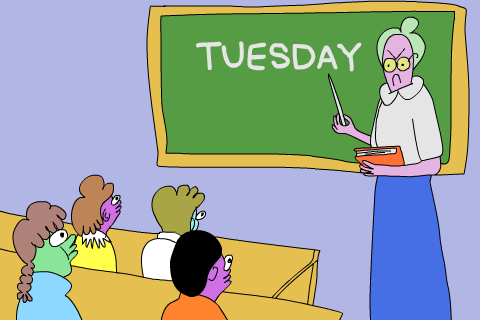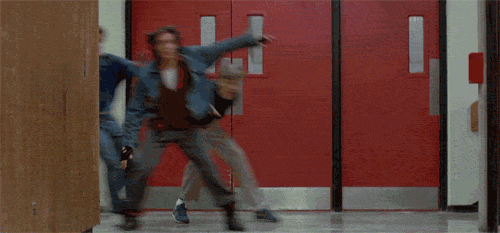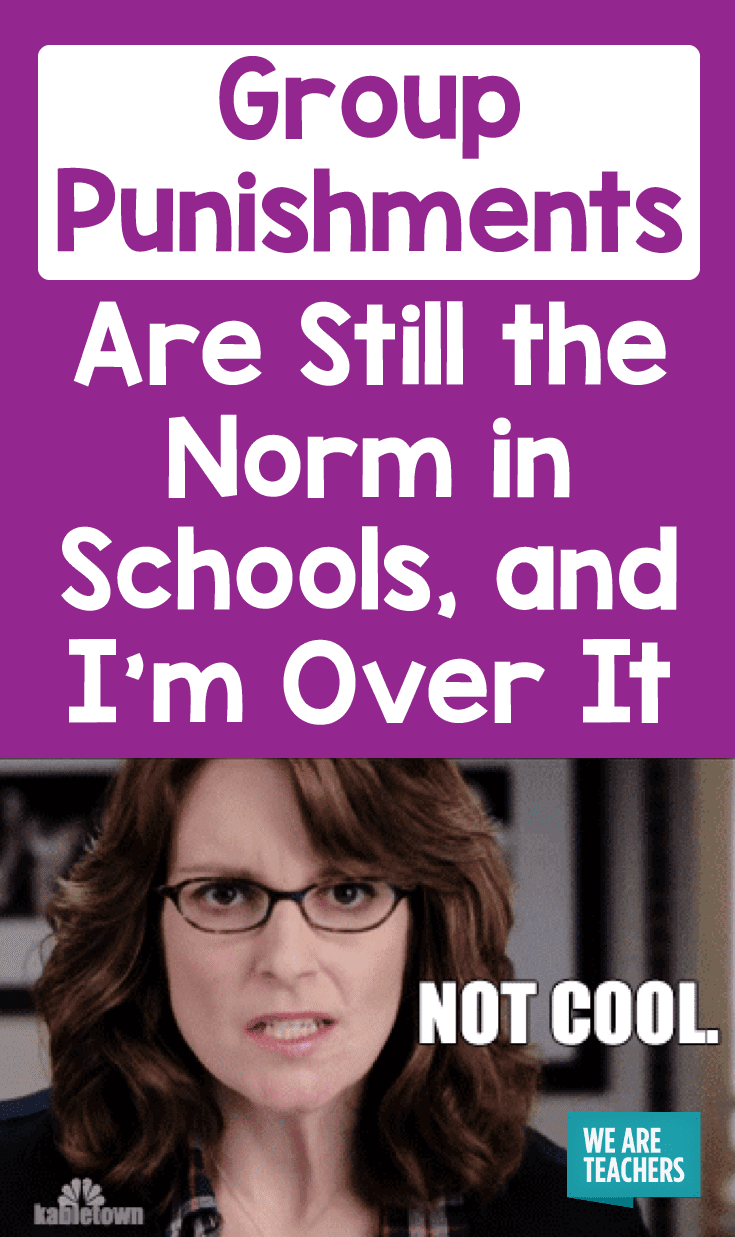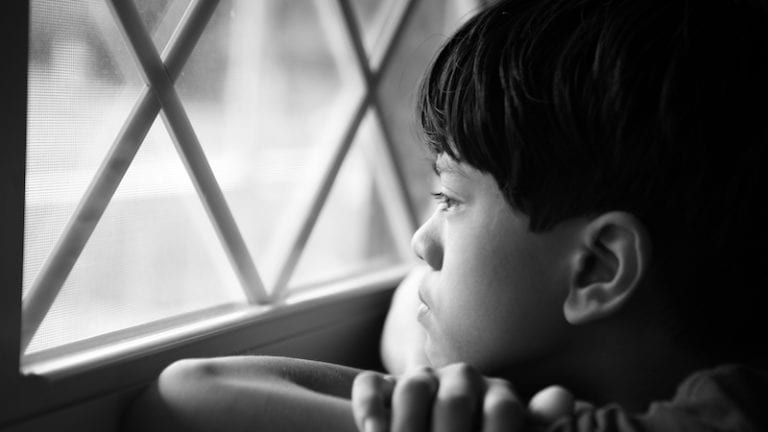I have “that class” right after lunch.
You know the one; the class composed of kids who are all delightful as individuals, but when you put them together, they seem to lose all semblance of self-control and decorum.
It’s been an issue since the first week of school, and what we’ve done so far has definitely not improved the situation. That’s probably because the school’s main tactic has been assigning ever-increasing numbers of lunch detentions to the entire class. I love my colleagues and my administration, and most of the time they get it right. But punishing an entire class or using collective punishment for the actions of a few is, for me, a big swing and a miss.

I remember (and hated) collective punishments as a kid.
I attended a middle school (longer ago than I care to admit) that was big on “collective responsibility,” in which everyone faces the consequences when someone screws up. As a massive nerd and something of a social pariah, I spent years missing recess, sitting in assigned seats in the cafeteria, and writing a hundred times that I wouldn’t do something that I had not, in fact, done.
The idea was that the “good kids” would put pressure on the “bad kids” to change their behavior, since it affected the entire group. That didn’t work. Too often, the kids who misbehaved were popular kids and the kids who got punished lacked the social clout to protest.
As a teacher, I try really hard to avoid group punishments. I want the power in my classroom to belong to the responsible kids who make good decisions. It’s not always easy, though, especially in the heat of the moment. Here are a few things that have helped me with this.

Instead of collective punishments, try collective rewards.
I do a Harry Potter-esque point system. Kids earn points for attendance, homework, hilarious comments, being able to rap the entire Fresh Prince theme…you get the idea.
If a whole class gets loud or off-task, all I have to do is dock five points from the chalkboard in the corner of my room and they settle right down. No silent lunch, no extra assignments needed. Other teachers put marbles in a jar to work up to a class reward. It’s still collective responsibility, but it leaves room for a little more grace.

Sometimes you have to go full scale Nancy Drew on students.
If there’s a major offense—say, somebody’s stuff gets vandalized—and nobody ‘fesses up, it’s tempting to threaten a whole-class punishment until a culprit is found. Instead, I make every kid in class get out a piece of paper and anonymously write down any pertinent information.
If you don’t know anything about what happened, write a haiku or draw a picture of a stegosaurus wearing a leather jacket. That way every kid is writing something and nobody risks being identified as a snitch. Then I read their comments and announce that I’m fairly certain who committed the crime (even if I’m not) and that that person has until the end of the day to come clean about it. It generally works.

Make the group as small as possible.
No matter how good my intentions, I can’t always avoid punishing innocent kids. So if nothing else, I try to limit the group as much as I can. If one side of my classroom is left a mess, I don’t make the whole class come back and clean during recess; only the kids who sat at those tables. If only the back of the line is horseplaying, there’s no need to send the whole line to silent lunch. It’s still not fair, but it’s less unfair, and the kids recognize that.

Find creative ways that work for you.
My fourth period class will almost definitely continue to make me crazy in the future. They’re impulsive and high-energy and, dear God, they are loud. And some of my solutions will involve the whole class, like building in more physical activity and student choice in my lesson plans.
But I won’t be sending a whole class to lunch detention any time soon, because I like interventions that actually work.


